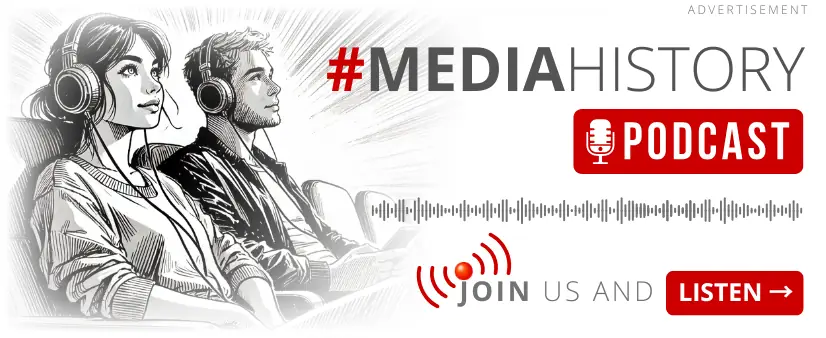 illustration: Bing AI
illustration: Bing AIPublic media play a crucial role in building social trust in information, and their significance in democratic societies cannot be overstated. The latest report from the European Broadcasting Union`s EBU Media Intelligence Service shows that public news services remain the most trusted source of news in Europe.
Trust in Public Media – Numbers Speak for Themselves
The report reveals that in as many as 91% of surveyed media markets in Europe, public media are the most frequently chosen source of information. This is particularly well illustrated by examples from Scandinavian countries: in Finland, 84% of respondents trust Yle, while in Sweden, 75% regard SVT as a reliable source of information. Moreover, even in countries with lower trust in public institutions, such as the Czech Republic or Portugal, public media lead the trust rankings.
Examples from the report:
- 73% of Estonians trust ERR, compared to only 55% trusting commercial media.
- In the UK, 45% of respondents choose the BBC as the most reliable news source, far ahead of its competitors.
- In Poland, public media lag behind – only 13% of young people (aged 15–24) and just 30% of the general population consider them one of the main sources of information.
| Country | Trust in Public Media | Trust in Commercial Media |
|---|---|---|
| Finland | 84 | 65 |
| France | 82 | 73 |
| Netherlands | 80 | 67 |
| Switzerland | 79 | 62 |
| Ireland | 78 | 63 |
| Denmark | 77 | 64 |
| Norway | 76 | 62 |
| Sweden | 75 | 60 |
| Austria | 75 | 60 |
| Estonia | 73 | 55 |
| Lithuania | 73 | 50 |
| Belgium | 68 | 58 |
| Portugal | 66 | 55 |
| Czech Republic | 67 | 54 |
| Germany | 63 | 22 |
| Spain | 46 | 40 |
| UK | 45 | 6 |
| Poland | 30 | 22 |
| Greece | 25 | 36 |
| Hungary | 23 | 35 |
Poles, Hungarians, and Greeks Distrust Media
Low results in Poland, Hungary, and Greece may stem from the perception of public media as dependent on government policies. A common denominator for these countries is the view of public media as politically subordinated institutions. Critics accuse them of bias and lack of pluralism, discouraging audiences from considering them neutral information sources. Additionally, younger generations increasingly turn to digital platforms like social media or YouTube, which better match their needs and lifestyle.
In Hungary, criticism focuses on complete government control, resulting in media messages promoting specific political narratives. In Greece, societal polarization and insufficient funding impact media quality. In Poland, public media face accusations of bias and limited pluralism, particularly alienating younger viewers.
Conclusions for these three countries converge: reforms are necessary to strengthen editorial independence and rebuild social trust. Investments in content addressing diverse audience needs and transparency in media operations could be key.
Public Media and Young Audiences
Although young people increasingly use digital platforms, public media still rank among the top trusted sources in most countries. In Denmark, 57% of young people (aged 15–24) cite public media as one of their top three news sources. An intriguing trend is the growing trust in video platforms like YouTube, particularly compared to traditional commercial broadcasters.
- Public Radio and Television – Remain a main information source, especially in countries with high trust in public media (e.g., Denmark, Finland, Ireland). Around 50% of young people in 14 out of 28 EU countries identify them as key information sources.
- Video Platforms like YouTube – Popular due to short video formats and content by influencers and independent creators.
- Social Media (e.g., Instagram, TikTok, Facebook) – The rising popularity of visual apps like TikTok and Instagram drives young people to obtain information from posts, stories, and videos.
- News Websites and Apps – Youth value independent digital platforms delivering news in a condensed form.
- Podcasts and Audio Content – Gaining popularity for their flexibility (e.g., during commutes).
- Friends, Family, and Discussion Groups – Information obtained through trusted personal recommendations, especially in countries with low trust in traditional media.
Young Europeans increasingly prefer dynamic, easily accessible news sources tailored to their digital communication needs. Public media still play a crucial role in many countries, but their position is threatened by the growing popularity of social and video platforms.

Public Media and Democracy
The EBU report demonstrates that trust in public media correlates with higher citizen satisfaction with democracy. In countries like Denmark, Finland, or Ireland, over 75% of society expresses satisfaction with democratic functioning, aligning with high trust in public media.
- In Finland, where trust in Yle is 84%, 76% of citizens are satisfied with democracy.
- In contrast, in Greece, where trust in public media is just 25%, only 36% of society is satisfied with democracy.
Public media also play a vital role in reducing societal polarization. EBU data indicate that where public media enjoy high trust, societies are less divided. Research in Germany shows that 66% of citizens consider public radio trustworthy, contributing to a higher perception of social cohesion.
- Lower levels of news avoidance: higher trust in public media means fewer citizens deliberately avoid information.
- Better perception of opinion diversity: in countries like Ireland or Sweden, over 80% of respondents are satisfied with media pluralism.
While data highlight public media`s advantage in building trust, the EBU report emphasizes their challenges. Similar to findings in "Reuters Digital News Report 2024," EBU analysts stress that in times of rising disinformation and political pressure, independence and high-quality content remain critical. In countries like Hungary or Poland, where public media are viewed as political tools, reforms to enhance independence are essential.
***
The “Trust in Public Service Media” report by EBU Media Intelligence Service is based on data from Standard Eurobarometer, Flash Eurobarometer Media & News Survey, Reuters Institute Digital News Report, World Values Survey, and RSF World Press Freedom Index. It analyzes trust in public media across Europe and includes findings from local surveys conducted by EBU members and academic literature on media impact on society and democracy. The analysis combines quantitative and qualitative data, with detailed methodologies ensuring transparency and credibility of conclusions. The full report is available for free at:
https://www.ebu.ch/research/membersonly/report/trust-in-public-service-media
COMMERCIAL BREAK
New articles in section Media industry
Freelancers 2025 in media and advertising. Useme report
Krzysztof Fiedorek
The modern media and communication market presents entirely new challenges for independent creators. Traditional services are giving way to more complex forms of messaging. The most popular industries in which Polish freelancers operate focus on companies' online presence and visual content.
Video content in Poland. What and how we watch
Paweł Sobczak
Video content is watched remotely, but streaming services are mainly enjoyed in the comfort of home. This is how the consumption of audiovisual content by Poles in 2025 can be summarized. This is the result of an analysis of a study conducted by SW Research and data from the company MEGOGO.
How artificial intelligence misrepresents the news. PBC analysis
Sylwia Markowska
In news summaries generated by the most popular models in Polish, as many as 46% of responses contained at least one significant error, 27% had serious issues with sources (missing, misleading, or incorrect), and 19% contained hallucinations and outdated information.
See articles on a similar topic:
Violence in Media and Child Rearing
Małgorzata Więczkowska
The influence of mass media on individuals is now an undisputed fact. There is no place today where this impact on religious, moral, political, social, or educational attitudes cannot be felt.
Media Subscriptions to Replace Advertising. TMT Predictions 2018
BARD
Some publishers already consider attempts to generate revenue from online advertising a waste of time. According to the "TMT Predictions 2018" report by Deloitte, by the end of 2018, half of all adults in developed countries will have at least two online media subscriptions.
Journalism in the age of AI. Why people prefer humans over machines
Krzysztof Fiedorek
Only 12% of people accept news created solely by AI, while 62% prefer those written by humans. At the same time, only 19% notice labels indicating the use of artificial intelligence, while younger audiences ask AI to explain the content to them. These are the findings of the Reuters Institute report on artificial intelligence in media.
How the Media Talk (or Stay Silent) About Climate. Reuters Institute Report
Krzysztof Fiedorek
Although climate change is becoming increasingly noticeable worldwide, the media have failed to maintain growing interest in the topic. The report "Climate Change and News Audiences 2024" shows that audience engagement with climate topics has remained almost unchanged for several years.





























